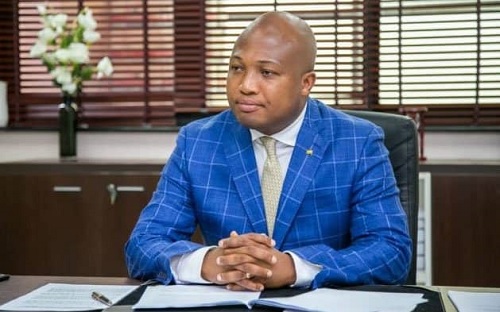The Minister of Foreign Affairs, Samuel Okudzeto Ablakwa has announced plans to introduce 24-hour operations at the passport office and Ghana’s foreign missions as part of President John Mahama’s push for a round-the-clock economy.
Addressing Ministry staff on Monday, February 10, 2025, Mr Ablakwa said the move would improve passport processing, reduce delays, and create jobs.
He noted that shifting to a 24-hour system could potentially triple the current workforce at the passport office.
“The President strongly believes in a 24-hour economy, and this is one way we can implement it. Extending operations at the passport office will not only improve service delivery but also generate employment,” he said.
Mr Ablakwa also called for the full digitalisation of passport services and the integration of biometric data across government institutions to eliminate duplication.
He criticised the current system, where agencies such as the Passport Office, National Identification Authority (NIA), Driver and Vehicle Licensing Authority (DVLA), and health services all collect biometric data separately.
“If the government already has your biometrics, why should you be required to submit them again for a passport renewal? It’s a needless waste of time and resources,” he said.
He added that discussions had begun with a foreign counterpart to bring in technical experts to assist with integrating biometric databases.
The minister further announced the establishment of a committee on Migration and Welfare of Ghanaians in the Diaspora to tackle the exploitation of Ghanaian migrant workers.
He lamented that many Ghanaians working abroad are subjected to abuse due to weak regulations, with some having their passports confiscated and wages unfairly deducted by rogue agents.
“This must stop. Government-to-government agreements will help protect our citizens. When host countries know that the Ghanaian government is monitoring the welfare of its people, they will be treated with dignity,” he said.
He pointed to Cuba and Indonesia as examples of countries that have successfully leveraged structured migration policies for economic gain.
Mr Ablakwa stated that the committee would be given one month to propose measures to protect Ghanaian workers abroad and ensure migration policies yield economic benefits.
As he concluded, he assured ministry staff that their welfare remains a priority, recalling his past advocacy as ranking member of the Foreign Affairs Committee for improved working conditions, including restoring duty waivers for returning officers.
He urged them to support ongoing reforms aimed at modernising Ghana’s foreign services and strengthening their economic role.

